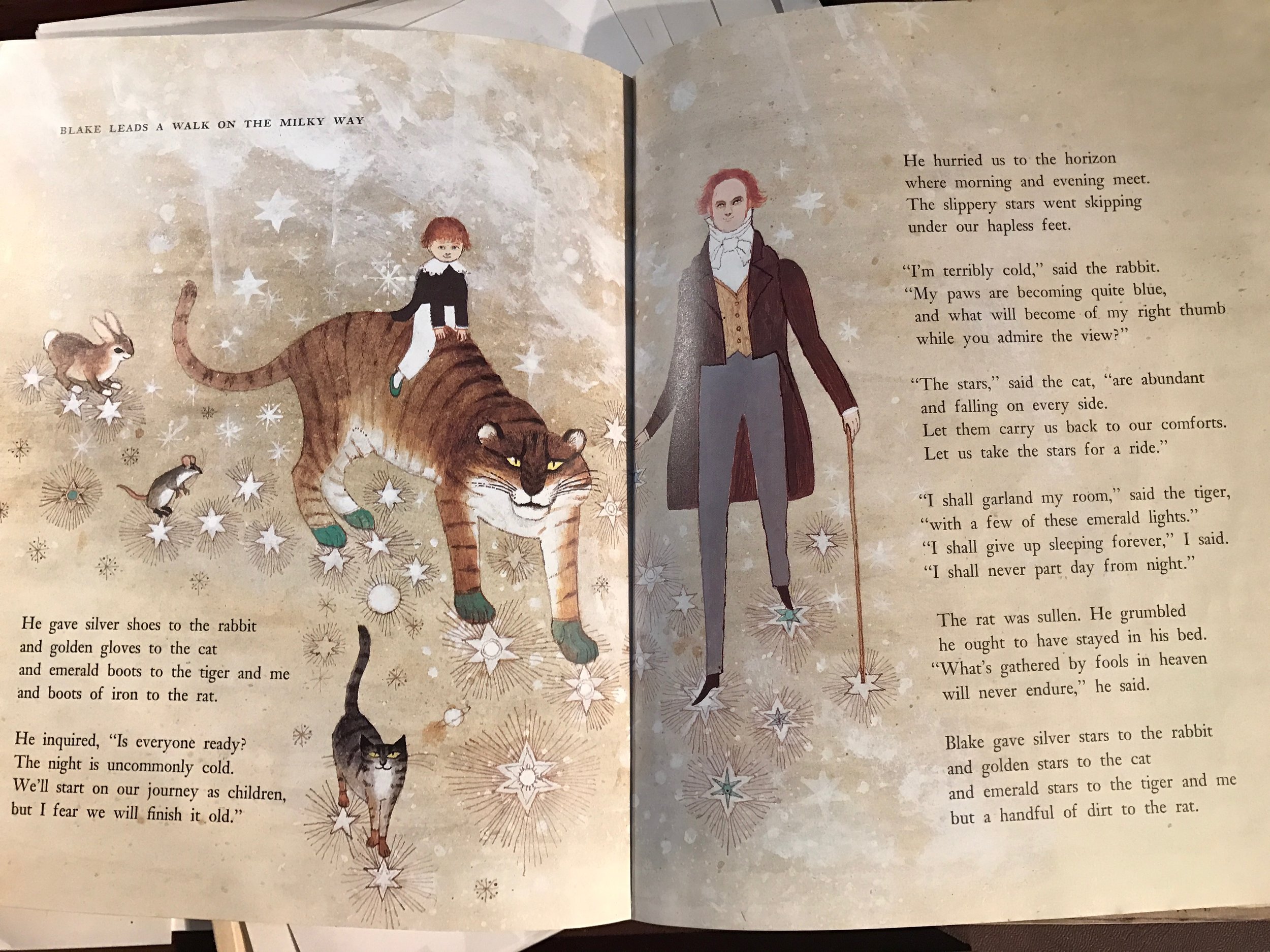Here's a great ABORTIVE ATTEMPT!
/If you’ve ever done as I suggested and gone to check out William Blake’s Inn, and if you’ve taken my advice to listen to “Blake Leads a Walk on the Milky Way” because it’s stellar (get it??), then this post will perhaps interest you more than if you haven’t.
“Milky Way” was the last bit of A Visit to William Blake’s Inn that I set to music, and it’s easy to see why: It’s the central poem, it’s very long, and it describes a stroll among the stars.
He gave silver shoes to the rabbit
and golden gloves to the cat
and emerald boots to the tiger and me
and boots of iron to the rat.
I knew that I wanted to portray, musically, the majesty of the enterprise, the vastness of the stars, the uncertainty of the characters as they set out on this epic adventure. Here is the pinao score of my first ABORTIVE ATTEMPT:
Here’s what that sounded like:
Meh. If you’ve listened to the piece before, you’re probably appalled at this attempt.
I liked the “chimes,” and the slippery harmonies made sense, but it didn’t work. It’s plodding, too four-square, not at all mysterious. “Milky Way” is about going way beyond your earthly bounds and responding to things beyond your grasp. It’s about the journey, with the fear and the wonder and the exultation. It’s about how some of us can’t do that. (Hold that thought.)
It took me a long time to hammer this piece into shape, but eventually I found it.
Here’s the tape of that opening phrase:
There it is, the vastness, the mystery, the magic. It took me five or six versions to find this, and that’s the point: Unless you’re Mozart — and you’re not — it’s not going to come out of your head all shinyperfect and enchant you. It’s going to be like the old folk belief that bear cubs were born without a shape and had to be licked into cuteness by their mother.
And that’s the point of the Lichtenbergian “cycle” of ABORTIVE ATTEMPTS —> GESTALT —> SUCCESSIVE APPROXIMATION [repeat], isn’t it? You create something, you MAKE THE THING THAT IS NOT without any expectation that it’s going to be the perfect, final form. You step back and evaluate it. You nudge it closer. Repeat.
Lick it into shape.
And if you do that enough times, you end up with something glorious like “Blake Leads a Walk on the Milky Way.”
Sidebar: Many people, upon hearing the piece for the first time, are bothered by the way the Rat seems to get short shrift at the end:
He gave silver stars to the rabbit
and golden stars to the cat
and emerald stars to the tiger and me
but a handful of dirt to the rat.
Allow me to allay your concerns: The Rat is what we call in Shakespeare a “refuser of joy.” Like Malvolio or Timon or Jaques, the Rat is unwilling to be entranced by awe or joy. He sneers that “I ought to have stayed in my bed. What’s gathered by fools in heaven will never endure,” and his handful of dirt is exactly what he has expected.
However, in the (eventual) staging of this piece our friends go on their way at the end, leaving the Rat alone down center, and as the music swirls upward and away a single bright star floats down to him. He looks up at it, drops the dirt, and reaches up for it as the lights fade.
Hope. Openness. Gratitude. Redemption.
And you thought this was just a simple children’s book.





